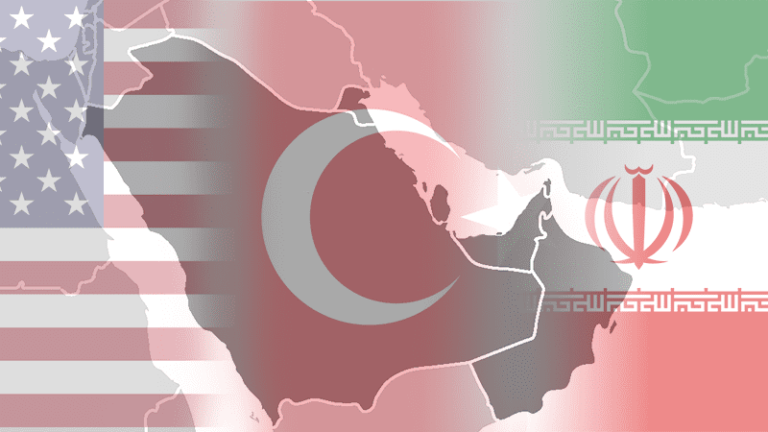
The current crisis among Gulf Cooperation Council (GCC) states––pitting Saudi Arabia, the United Arab Emirates, and Bahrain against the State of Qatar––has exposed an unwelcome split within the Trump Administration. Secretary of State Rex Tillerson and Secretary of Defense James Mattis have called for compromise and mediation to defuse the crisis among the US allies. On the other hand, President Trump and his staff—influenced especially by his son-in-law Jared Kushner—have, at best, been ambiguous about where they stand. Indeed, the president has shown ill-advised leanings toward the views of UAE Crown Prince Mohammed bin Zayed Al Nahyan and Saudi Arabian Crown Prince Mohammed bin Salman Al Saud. Needless to say, neither the crisis nor taking sides in it serve the interests of the United States or the GCC states.
Changing Dynamics in the Gulf Region
Since the eruption of the crisis at the end of May, it has become increasingly evident that it was more the result of personal leanings and preferences than institutional differences. It is shortsighted because it has diverted attention from the main issue: Iran’s meddling in the region’s affairs. The crisis has arguably resulted in pushing one of the GCC countries (Qatar) toward Iran, thus facilitating a new type of regional alliance where Qatar and, to a certain extent, Oman, will be siding with Iran for practical and pragmatic reasons. In addition, the advent of Turkey as a new military and security guarantor of Qatar’s safety and territorial integrity must be viewed seriously by the Gulf states blockading Qatar (Saudi Arabia, the United Arab Emirates, and Bahrain). Through this crisis, these three states have unwittingly and unwisely involved Turkey and Iran deeply in the Gulf’s strategic arena, a factor that has exacerbated tensions greatly.
Current dynamics and power relations in the Gulf show a very complicated picture and can be summarized as follows:
- The traditional GCC-US alliance and the security guarantees extended by the United States toward GCC countries have been in place for many years. In fact, Washington has unceasing strategic interests in all six GCC states. It has the largest air facility in Qatar, al-Udeid Air Base, and forward headquarters of CENTCOM. In Bahrain, the United States maintains its vital Fifth Fleet, which operates in and around the Indian Ocean. With Saudi Arabia, Washington enjoys the position of a historical ally that has stood the tough tests of friendship for more than 70 years. Oman, which was the first GCC state to have official diplomatic and commercial relations with Washington dating back to the first half of the 19th century, plays a significant role as intermediary for the United States, the most recent example being the negotiations over the Iran nuclear deal in 2015. In addition, Oman’s waterways and maritime routes are important for US strategic naval interests to secure safe and guaranteed sea lanes in and out of the Arabian Gulf. The UAE hosts American air assets at al-Dhafra Air Base. Finally, Kuwait has worked as a logistics base for any US physical military presence in the region.
- It is imperative for the GCC states as well as the United States not to facilitate Iran’s increased influence in the region. However, the current behavior of Saudi Arabia, the UAE, and Bahrain may have served to encourage Qatar, under the pressure of boycott and siege, to seek support from Iran. This will give Iran a justification for its meddling in the internal affairs of the GCC states. In this case, Bahrain and Kuwait will be the first victims, followed by Saudi Arabia and the UAE. As for Qatar, the small Shiite community there may be intimidated by Iran and pressured to fall in line with Tehran’s dictates.
- The crisis has added a new wrinkle into the fabric of GCC relations by introducing Turkey as a factor in the region’s military posture. Only time will tell if Turkey will become a long-term guarantor of Qatari security now that it dispatched some soldiers to the country, or if it will become a burden on Qatar. From the look of things, the blockading countries perceive Turkey as a meddler and source of instability, and indeed demanded that Doha sever its military relations with Ankara.
- It is important to maintain a workable balance between the imperatives of national security and the requirements of bilateral/multilateral relations among the GCC states and between them and other neighbors in the region. In this regard, Iran is clearly seen as the most dangerous and damaging source of insecurity and instability in the region. Its Islamic Revolutionary Guard Corps (IRGC) threatens the sovereignty of neighboring states and the international sea traffic within the Arabian Gulf and indeed through the strategic Strait of Hormuz. It is noteworthy here that Iran unlawfully invaded and occupied three UAE islands at the northeastern approach of the strait in 1971 and continues to occupy them.
Additionally, Iran’s conventional military posture shows a surplus of net usable offensive power toward any of the members of the GCC. As a hedge, and for security purposes, the GCC countries opted to build international alliances with the five permanent members of the United Nations Security Council. The one that looked as if it would be the most able to guarantee the security and territorial integrity of the GCC was the United States; however, this commitment was badly eroded during former President Barack Obama’s era. It seemed then that Washington chose to part with its commitments to the GCC states, as evidenced by the US-GCC bilateral meeting at Camp David in May 2015. It appeared then that the GCC was abandoned as the United States’ interest shifted to an Asia-Pacific strategy and away from its long-established Middle Eastern focus in which both oil and strategic geopolitical importance have played a decisive role.
- Each of the Gulf states has sought its individual path to magnify its security guarantees. For example, Saudi Arabia embarked on defense acquisitions, enhanced its alliance with Pakistan, waged the operation against the Iranian-backed Houthis in Yemen, and established a pan-Islamic alliance. For a limited time, strengthening relations with Turkey was one of Saudi Arabia’s alternatives in this context. The UAE chose to be involved in the affairs of the region, counted on arms purchases, invited France to establish a physical presence in the region, maintained an alliance with Egypt under President Abdel-Fattah el-Sisi, and preferred clandestine maneuvers to guarantee its security and territorial integrity. Qatar, however, chose to strengthen its relationship with Turkey, a country considered the regional counterbalance to Iran. This strategic alliance is proving beneficial during the present GCC crisis, as Turkey quickly came to the support of Qatar not only verbally and diplomatically, but also militarily.
Trends of the Current GCC crisis
Although the current crisis seems to have appeared out of nowhere, it had deeply planted roots in the inherited tribal feuds among some of the GCC states which could not be erased by wealth or the guises of modern life. The meeting in Riyadh in May 2017 of President Donald Trump and King Salman bin Abdulaziz Al Saud may have provided a long-sought moment between the two countries, but it was later overshadowed by the belligerent personalities of both Crown Princes Mohammed bin Salman and Mohammed bin Zayed. The two played decisive roles in provoking and aggravating this crisis.
The accusations of the four blockading countries (the three GCC states and Egypt) were stamped with the personal seals of both the Saudi and Emirati powerful personalities; the Egyptian addition was only superficial, and it was hypocritical. Qatar’s measured reaction defused a potential military escalation. The presence of Turkish troops provided a necessary deterrent, boosting Qatar’s national security and territorial integrity and strengthening its alliance with Turkey.
Washington’s Role, and the Way Forward
The strong player and actor in Gulf regional security is the United States, which—as mentioned previously—has a permanent military presence in Qatar, Kuwait, UAE, and Bahrain. With the other two states—Saudi Arabia and Oman—the United States has very strong security and military cooperation. Therefore, Washington is trying to keep the crisis under control and, depending on the extent of its diplomatic investment, is encouraging Kuwait’s mediation efforts. The real attitude and behavior of President Trump, however, are unpredictable; his tweets send conflicting messages and may encourage at least the Emiratis to adopt military or paramilitary security measures to destabilize Qatar. This, of course, would exacerbate enmities in the region and lead to a loss of control over the negotiations to end the crisis.
The crisis is still ongoing and unfolding, though its initial furor has receded somewhat. The military alternative has also abated, though this is also pending the outcome of active diplomatic pressure on the parties. It is important that the situation be dealt with as a GCC crisis, isolating the Egyptian factor to pave the way for a workable solution to GCC differences. Egyptian-Qatari relations can be dealt with afterward. This course will guarantee a simpler and more viable solution.
Internal meddling to support domestic factions against their governments will lead to enmity between states and thwart any possibility of constructive bilateral relations. In addition, the military alternative, sabotage, and terrorist means should be ruled out. Finally, the media should be encouraged to deal with the crisis in a professional way.

